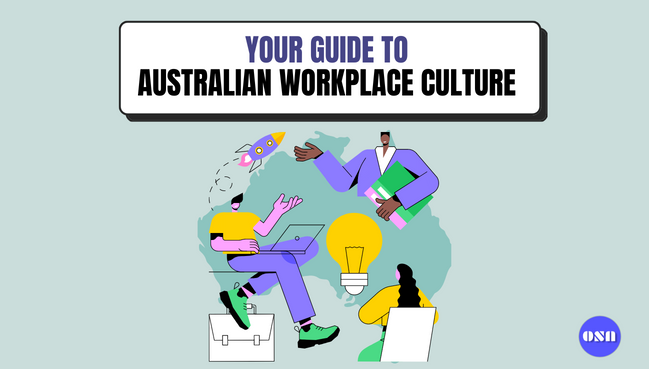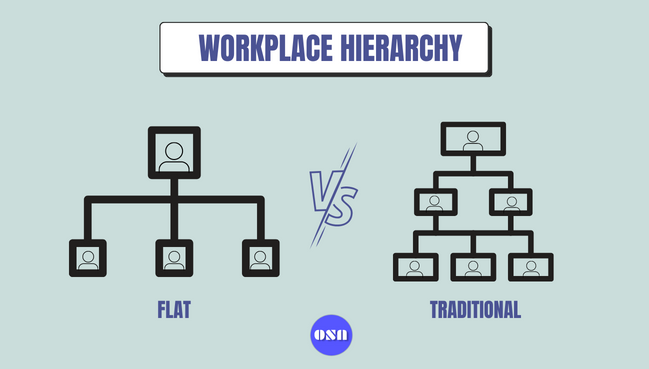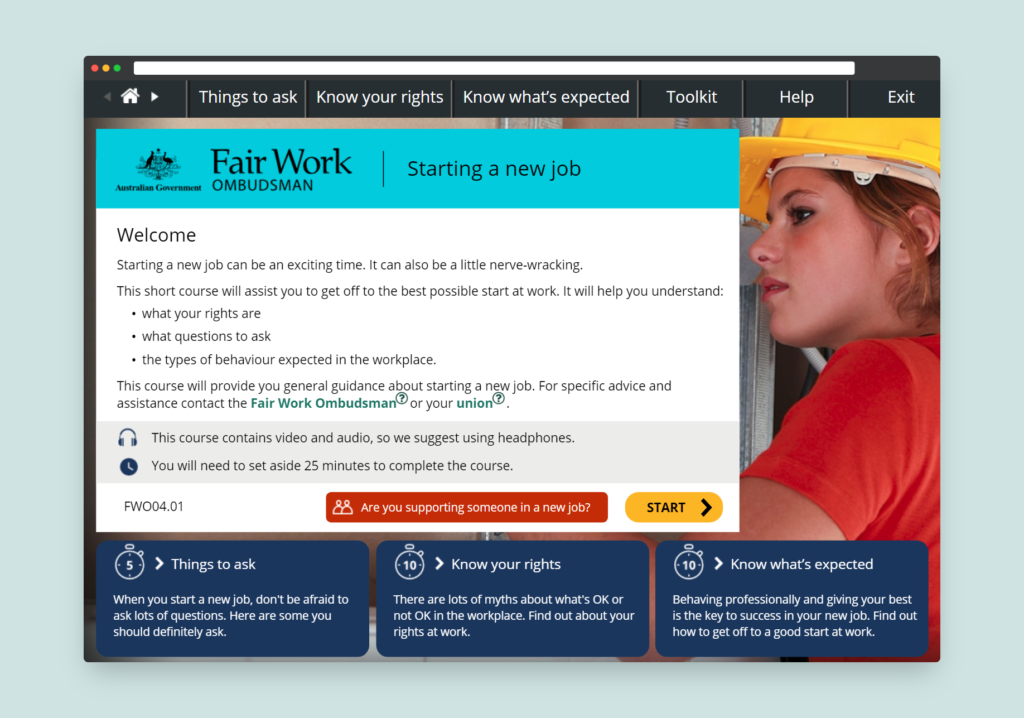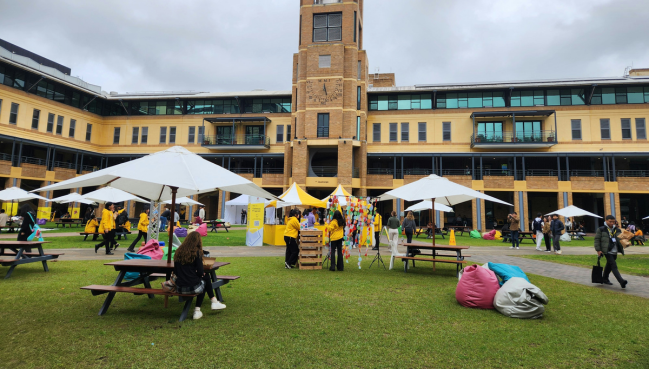Your Detailed Guide To Australian Workplace Culture

If you are coming to Australia for study or work, you will find that the Australian workplace culture is quite different from your home country.
Would you like to know what’s the difference?
If the answer is YES!, then let’s get started.
In this article, we are going to talk about Australian workplace culture and some other work requirements.
We will cover the details of them in the different sections.
Work hours in Australia
Work hours will vary depending upon the arrangements you have with your employer and the industry you are working in as well.
Typically speaking, most full-time workers are expected to work 38 hours per week. But in some cases you could be asked for additional overtime work hours as well.
Usually you expected to get paid for those additional hours (look at your employment contract).
Now if we are generally talking about office hours, it’s between 9 AM to 5 PM from Monday to Friday. Most offices are closed on the weekends.
However, some businesses may open till late like Hospitality venues such as bars, pubs, restaurants, etc. can be open till late night. Many of these venues start late afternoon from 5 pm, and they can be open till 10pm or later (depending on the venue).
Some workplaces may be doing an overnight work as well which means that you could be working late night to early morning shift. For example, some supermarkets have night shifts that start at 10 pm and finish at 6 am.
Your work hours will vary depending upon the industry, the type of job and employment contract.
Your work hours will include brakes as well depending on the length of the work hours. If you are working for 4 hours or more, then you will get a 10-minute rest break. If you are working for more than 5 hours, then you could be getting one 10-minute rest break and 30-60 minutes meal break.
Usually, you tend to get longer break if you’re working for longer hours.
We suggest you check your meal breaks from the Fairwork Australia website as they specific information for each industry about the break between shifts.
The table below shows an example of meal breaks for Retail sales staff in Retail industry.

Please note that breaks are different for each industry, and you can check that for each industry from this link here.
Salary and wages
Australian employers are expected to usually pay their employees a minimum wage as set out by Fairwork Australia or Industry award rates.
Fairwork Australia is a government body that makes sure that the workplaces are treating their employees fairly which includes your work rights and your pay rates.
The minimum wage set out by FairWork Australia gets reviewed every single year, and usually it gets updated on the 1st of July each year.
The financial year in Australia starts from 1st July each year.
At the time of writing, the current minimum wage is $21.38 per hour for the financial year 2022 -2023.
From 1st July 2023, it is expected that there will be a new minimum wage.
Apart from getting a minimum wage, if you’re working late night or doing overtime, you are expected to get paid a penalty rate (overtime rates) for the work you do during those hours.
You are also expected to get penalty rates if you are working on public holidays or over the weekends.
Communication style
Most of the time, Australians use direct communication in workplaces.It means they like to get to the point without going around in circles to communicate things.
So whenever you have something to ask or clarify, you can go directly to the person and have a conversation about it.
Australians also prefer to have clear and concise messages which means they try to keep the things as brief as possible and making sure that it’s clear enough for the person to understand.
Australians are usually very friendly, honest and open-minded people, and they expect the same sort of thing from you when you’re working here.
During verbal communication, you will see Australians using slangs at the workplaces.
As you might know that Australians like to abbreviate everything, so they will try to use their slang during the work hours as well.
Want to know more about Aussie Slangs? Check out this ultimate guide for Australian slangs and phrases.
It can make things very interesting, especially if you don’t understand their slangs and if that’s the case don’t hesitate to ask back again.
Australians are also known for their humor too. They tend to make jokes and have a bit of fun during their work hours, which can be quite difficult when you are new to this workplace culture.
Australian workplace hierarchy

Typically, Australian workplaces are less formal in their hierarchy.
In many organisations, you could see a horizontal hierarchy, where there may not be lots of layers of management, supervisors and so on.
Obviously some workplaces will have a traditional sort of hierarchy as well, but a lot of them are moving toward a flat or a horizontal hierarchy.
It means teamwork and collaboration are highly encouraged in Australian workplaces among colleagues.
You can provide your input regarding work or ideas freely and is usually encouraged by team leaders in the workplace.
Colleagues are respectful toward each other regardless of the country, culture or background they come from; everyone is treated equally.
Social norms
Here are a few social norms you need to be mindful of when working in Australia:
Australia is a multicultural country with 29.1% of the Australian population born overseas. It makes the Australian workplaces diverse and very multicultural as well.
It is very likely that you will be working with people from different backgrounds, genders, races, religions, ethnicities and cultures.
When greeting someone in Australia, it is ideal to do a firm handshake.
Eye contact is a very important thing in Australian workplace culture as well, so make sure to look into the eyes of a person you are speaking with.
When speaking with someone, you usually call them by their first name. Even when speaking with your supervisor, line manager or boss, you call them by their first name.
It doesn’t mean that you are disrespecting them, but it is just a common thing as everyone is treated equally.
One other important thing is punctuality, which means you need to be on time when you’re starting your work, and usually you finish on time as well.
So let’s say your work starting time is at 9 o’clock, you are expected to start work by 9 and if it’s 5 o’clock finish means you finish at 5. Unless you are requested to stay back and in that case you usually get paid extra money for that.
Let’s talk about dress code, shall we?!
During work hours, you have to usually wear a formal dress as per the requirement of the organisation.
Some businesses may have their own specific dress. For that you will have to wear a specific shirt or t-shirt and a black pant and formal shoes.
But if you are working in an office environment, you expect to dress professionally by wearing a shirt, pant and formal shoes. Some workplaces encourage the staff to wear a suit and a tie.
For females, it’s expected that they wear formal dresses to work. But sometimes semi-casual dresses are also acceptable in certain workplaces for both males and females.
Australians also like to socialise after work. So people tend to go for a drink or even catch up during lunchtime with their co-workers. It’s just an Australian thing to do.
If you are living in a city like Melbourne, where Coffee Culture is such a big thing, you could be going out for a coffee with your workmates.
As multicultural Australia’s society and workplaces are, it is still expected that you speak English during work hours with your colleagues even if they come from similar backgrounds.
As other colleagues from different backgrounds may not understand your language. It can offend people as they might think that you’re talking bad about them in your own language.
Workplace issues
It is important to note that any sort of discrimination, harassment or bullying is not acceptable in Australian workplaces.
It’s important to be respectful toward others if you even have differences in opinions, backgrounds and beliefs. It is important to treat everyone fairly and equally, and you can expect the same from them.
It’s very important to know about your work rights in Australia. If you face any sort of workplace issue, bullying or harassment, then reach out to the senior management of your workplace for help.
But if they are unable to help you, then you can look to get some external help from organisations like Fairwork Australia.
You can even take short courses from Fairwork Australia website that can help you prepare better for your work life in Australia.

So, that’s all for the Australian workplace culture. We hope you find the information useful.
Leave your thoughts and comments on Australian workplace culture if you are already living and working in Australia.


